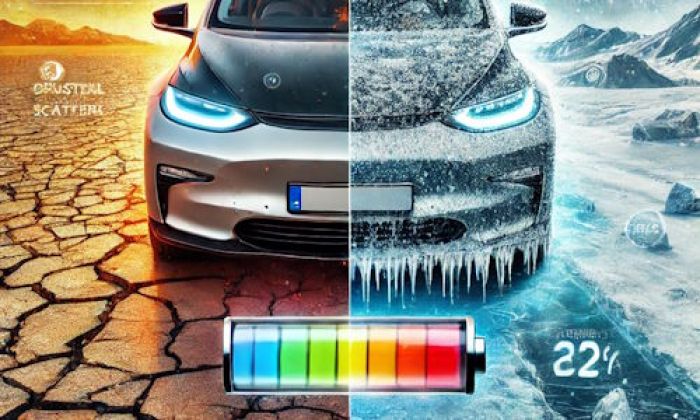Parking presents unforeseen challenges - collisions might occur even at these low speeds. And while every vehicle has parking brakes, Lexus' Advanced Parking Support Feature is designed to give you the confidence to pull into any parking spot with confidence. The feature is designed to protect your ride by improving your driving perception.
Parking support brake malfunction message highlights
- Common reasons:radar sensor problems, EVAP canister issues, electrical problems
- How to fix:check the sensor areas, check the EVAP, and take it to the dealer
- Possible consequences:a lot of smart functions won't be available
- Priority level:Low
- Can you drive?Yes
- DIY repair:Impossible
- Repair price range:$150-$500
.jpg)
How Does The Parking Support Brake Work?
To ensure your safety from vehicles approaching from behind, the Rear Cross Traffic Alert works with the Auto Braking system to alert the driver when you are reversing. The system will also display the potential danger in the center display and an indicator in the corresponding outer mirror.
The Parking Support uses the visual and audio cues from the Parking Support Brake and the Cross Traffic Alert to help you bring your Lexus to a stop when a collision is imminent. The system also uses Intelligent Clearance Sonar to detect and notify you of any obstacles all around the vehicle. This innovative safety feature makes tight space navigation easy and safe at low speeds.
If the obstacle is a static object like a wall, the system uses a buzzer to alert you of the imminent crash. It displays the barrier in the center display. The Parking Support Braking system will then bring the vehicle to a stop by using brake force control. If the system detects an obstacle in the rear using the Rear Cross Traffic Alert, the Parking Support Brake notifies you and attempts to bring the vehicle to a stop to avoid the collision.
Rear Camera in Modern Lexus'
In the latest Lexus models, such as the LS and LC, the parking Support Brake uses a rear camera to assist in detecting obstacles from behind the vehicle. If, for example, a pedestrian approaches from behind, the system, using the back camera, will alert the driver through audio cues and visuals. The visual alert uses the user-friendly Intelligence Clearance Sonar display to help you ascertain the danger.
If the pedestrian is too close to cause an accident and the driver cannot apply brakes in time, the system automatically triggers drive force control and brake force control to slow down and stop the vehicle.
Although this system is designed with one of the most advanced intelligent technology systems in the modern auto world, you are always responsible for your safety and those around you. Avoid using the Lexus Safety System in place of everyday driving. You can increase your confidence in the system by reading the manufacturer's manual before operating the system.
Parking Support Brake Malfunction - Causes
The Parking Support Brake depends on various factors to function correctly. Besides the brakes required to be in perfect order, the sensors, rear camera, and all systems involved must work correctly. There are four major players in Lexus' safety system that, if they fail, the Parking Support Brake also fails.
As mentioned earlier, the Rear Cross Traffic Alert works closely with the Automatic Braking System to notify the driver of any obstacles approaching from behind and attempt to bring the vehicle to a stop. It also relies on the Intelligent Clearance Sonar to inform you of any obstacles from around the car - obstacles in the front, rear, and the two sides, left and right. In modern Lexus vehicles with the Parking Support Brake, the system also uses back cameras to detect obstacles and help you act quickly.
If these four key players fail, it is most likely that your Parking Support Brake will malfunction. Flow with me as we explore possible causes of failure in these four systems.
- Automatic Braking System Failure
There are uncountable complaints about Automatic Braking System failure in many vehicles. Besides Lexus being a top luxury brand, its Automatic Braking System also fails. In the Parking Support Brake, the system is designed to detect and help avoid collisions when the vehicle is moving at slow speeds. This means it will not deploy airbags or any other accident anticipation measures.
When the system detects an imminent collision, it automatically triggers brake force control to stop the vehicle. Although the system may send the orders in time, if the automatic braking system is faulty, the brake force control will not work. As a result, you will hit that obstacle it was attempting to avoid. There are two ways these failures can affect the Parking Support Brake system. One is when it activates the brakes for no reason, and two is when it doesn't respond in time.
- Cross Traffic System Alert Failure
The Cross Traffic System Alert is an essential safety feature. It helps you to pull into or back out of any parking space confidently. The system will detect obstacles like walls and vehicles approaching from behind and send an alert to your central display. The alert uses a buzzer sound and visuals on the center screen. The system can also detect and warn you of obstacles approaching from the side.
For instance, the Cross Traffic Alert will detect vehicles coming down the lane if you are backing out of a parking lot. It will issue a warning buzzer to notify you of an imminent collision, and if you do not slow down or stop the vehicle, the Parking Support Brake comes in and attempts to stop the car.
If the Cross Traffic Alert is not working correctly, the Parking Support Brake might also not work properly. If this system has a problem, your Lexus will throw a warning saying, "Cross traffic system fault." This means either the Cross Traffic Alert is not turned on or there is a fault in the system.
If this is the case, you will need to visit a professional Lexus mechanic to inspect and fix the fault. In the meantime, drive safely, knowing your safety system is not functioning 100 percent properly.
- Intelligent Clearance Sonar Malfunction
The auto industry is advancing rather fast, and Toyota, through its premium luxury brand, Lexus, is not larking behind. The brand has used some of the most advanced innovations in intelligent technology to make your driving experience as satisfying as possible. Besides, what is more pleasing than knowing that your vehicle's safety system is top-notch and working 100 percent correctly all the time?
One of these features is the Intelligent Clearance Sonar, a system designed to prevent your vehicle from crashing into objects at low speeds, like in the parking lot. This is one of the systems that the Parking Support Brake relies on to function correctly.
However, the Intelligent Clearance Sonar may sometimes fail, making it difficult for the Parking Support Brake to activate at the required time.
The ICS system may fail because of several factors. For instance, the Intelligent Clearance Sonar will not work correctly if the sensors get exposed to water or other damaging elements such as low-speed crashes or loose wires. Irrespective of the cause, your Lexus mechanic can bring the system back into functioning mode.
What Causes The ICS System to Malfunction?
- One of the biggest culprits of the Intelligent Clearance Sonar failure is water leaking into the sensors. If you spend a lot of time in rainy or snowy areas, your Lexus ICS will likely fail because the sensors may be exposed to water or snow.
- Another cause of ICS failure is damaged sensors. If the sensors are physically broken, your ICS system might not kick in time to help the Parking Support Brake to stop your vehicle in case of an imminent collision. Sensors may be damaged from an earlier minor crash you didn't consider.
- Damaged wiring harnesses are also possible causes of intelligent Clearance Sonar failure. The more advanced your Lexus is, the more complex the wiring gets. And sometimes, it may cause the ICS system to malfunction, causing the Parking Support Brake to fail.
And if your wiring harnesses are loose, it is not only the Parking Support Brake that won't work; you will find it difficult to activate several electronic systems in your Lexus, including the Intelligent Clearance Sonar.
- Your Lexus ICS' proximity sensors use Ultrasonic Waves to determine the distance of obstructions. And because your vehicle is not the only one emitting such waves, external interference can affect the accuracy of the Intelligent Clearance Sonar in your Lexus. The result is often referred to as a malfunction.
Interfering waves may come from air brakes in large vehicles, motorcycle engines, and vehicle detectors. There also could be other ultrasonic wave-emitting devices within your area.
- Another possible cause of ICS malfunction is the vehicle's angle of inclination. For instance, if your Lexus is on a steep incline, the sensors might be obscured, thus making it impossible for them to detect obstacles. This may lead you to get involved in a slow-speed collision because the Parking Support Brakes will not be activated.
In Conclusion
The above are some of the most common possible causes of Parking Support Brake malfunction. If one or all of them fail, the PKSB in your Lexus will fail. And like any other vehicle functionality, the Parking Support Brake will remain in perfect order if you maintain a regular vehicle diagnosis and service.
Modern vehicles are more complicated than older models, which means maintenance is no longer about oil changes only. Ensure your Lexus is checked for system faults regularly, and your Parking Support Brake will never let you down.
About the authors
The CarAraC research team is composed of seasoned auto mechanics and automotive industry professionals, including individuals with advanced degrees and certifications in their field. Our team members boast prestigious credentials, reflecting their extensive knowledge and skills. These qualifications include: IMI: Institute of the Motor Industry, ASE-Certified Master Automobile Technicians; Coventry University, Graduate of MA in Automotive Journalism; Politecnico di Torino, Italy, MS Automotive Engineering; Ss. Cyril and Methodius University in Skopje, Mechanical University in Skopje; TOC Automotive College; DHA Suffa University, Department of Mechanical Engineering






Add comment